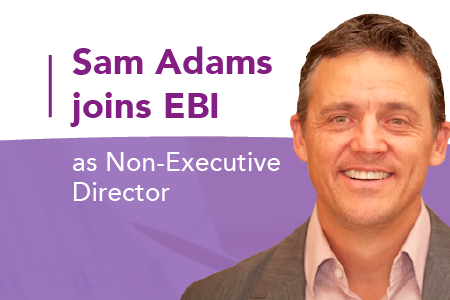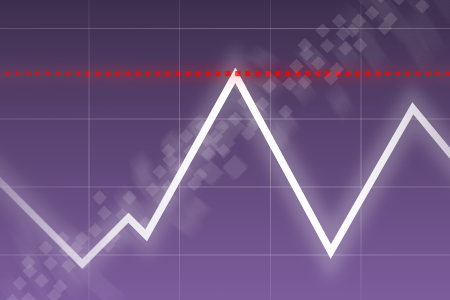
Cash, Bonds and Beyond
This blog explores the reasons why long-term passive investors may prefer to hold bonds over cash in their portfolio, despite the high rates currently on offer through cash savings accounts.

This blog explores the reasons why long-term passive investors may prefer to hold bonds over cash in their portfolio, despite the high rates currently on offer through cash savings accounts.

EBI Portfolios is delighted to announce the appointment of Samuel Adams (CEO, Vert Asset Management) as a Non-Executive Director, joining the company’s board in September 2020. Sam has a wealth of experience as a senior manager in the financial services sector, and particular expertise in ESG investments and presenting ESG solutions to advisers and investors alike.“We’re very excited to have Sam join the team at EBI” Craig Burgess, CEO, EBI Portfolios, “Our views on passive, factor-based and ESG investing are aligned, and we look forward to bringing Sam’s experience in this space back to the UK market.”“ESG investing is becoming a larger and larger part of our proposition at EBI, and Sam will be joining the team to aid in increasing the ESG elements of our portfolios, as well as liaising with our network of advisers; sharing best practice and advise on how to present an ESG solution to investors.”Previously, Sam started Dimensional’s Financial Advisor business in the UK & Eur…

[Note that this analysis will concentrate primarily on US Indices, as there is more available data, but it will inevitably apply to other markets as they tend to mimic the returns etc. of US markets].

Critiques of Passive investing According to Bank of America Merrill Lynch, passive investing now accounts for 45% of all US assets (up from 25% a decade ago), with equity passive funds amounting to c.$3 trillion at present.Our attention has recently been drawn to another high-profile investor, Michael Burry (article here), who believes that Passive investing is responsible for creating (another) bubble in asset prices, comparing it to the sub-prime mortgage bubble in that “price-setting in that market was not done by fundamental security-level analysis, but by massive capital flows based on Nobel-approved models of risk that proved to be untrue.” He follows other notable investors, s…

April was supposed to be the month that the underperforming Value and Small cap factor premiums rebounded from their painful COVID-19 crash. After all, that is exactly what famously happened after the TMT crash in 2000 when traditional Value stocks enjoyed a recovery after long periods of underperformance (1). And sure enough global small cap stocks registered an impressive bounce during April, rising 23.9% from lows in March against a 17.2% move in the overall market. That’s something, perhaps not overwhelming, whilst Value just tailed the market benchmark. Most Value investors, and many (but not all) Small cap investors, know that they have to take a long view and swim against the tide of take-downs and negative opinion which can at times seem overwhelming.

March 2020 will long be remembered as a month when information overload was tested beyond imagination. Embattled investors had to deal, not only with an imminent threat to life against themselves and their families, but also with violent liquidity and price collapses across asset classes, including even long bonds and gold.Diversification seemed momentarily to have failed. As it happens, it was also the perfect moment for me to start a new role as Investment Manager at EBI.Scanning through the market crashes of the past we see both uniqueness and commonalities. The 1973-4 crash left the US markets down around 45% and the UK down 67%. The 1987 stockmarket crash was over relatively quickly with a “V” shaped market and economic recovery. In 2000 the Technology, Media and Telecoms (TMT) bubble ended with a two-year blowout elongated by the events of 9/11. The Great Financial Crisis (GFC) of 2007 onwards was long drawn out with unprecedented levels of intervention led by Fed Chairman

Technology stocks are the top dogs of the stock market. For the last 6 months or so, they have risen almost without a pause and have become a greater and greater influence on the direction of the overall stock market. Last month, the big four MAGA stocks (Microsoft, Amazon, Google (Alphabet) and Apple) reached the point where they represented over 17% of the total S&P 500, and contributed almost 70% of the gains attributable to that Index in 2020 alone. How did they get this big and thus so influential on both the stock market and the wider economy? There was of course a lot of hard work, plus some innovative ideas, but they had a few advantages that were (mostly) unavailable to other firms. If you want to become a “tech titan”, some or all of the following tailwinds need to be behind you.

The information on this page is only intended for use by professional clients, regulated financial advisers and intermediaries who are knowledgeable and experienced in the financial services market and in investment products of this nature. It is not intended for retail investors. It has been an “interesting” week. In the space of just 6 trading days, the Dow Jones Index went from all-time highs to a “correction” (defined as a 10% fall from a high point). Reportedly, every continent on the globe is now infected (apart from Antarctica) and there have even been deaths in high political circles- for now in Iran, but other senior government personnel in other countries will inevitably follow, which may concentrate minds at decision-making level.

From time to time both ourselves and our clients get contacted by journalists looking for quotes and views on the debate surrounding Active and Passive Investing, which (usually) revolve around asking us what our investment approach is, or how we use the two types of investment strategies for our portfolios. So, in order to formalise our response and to give clients an idea of how to respond should they receive similar enquiries, we decided to put our views down “officially”, in the form of a Q&A.